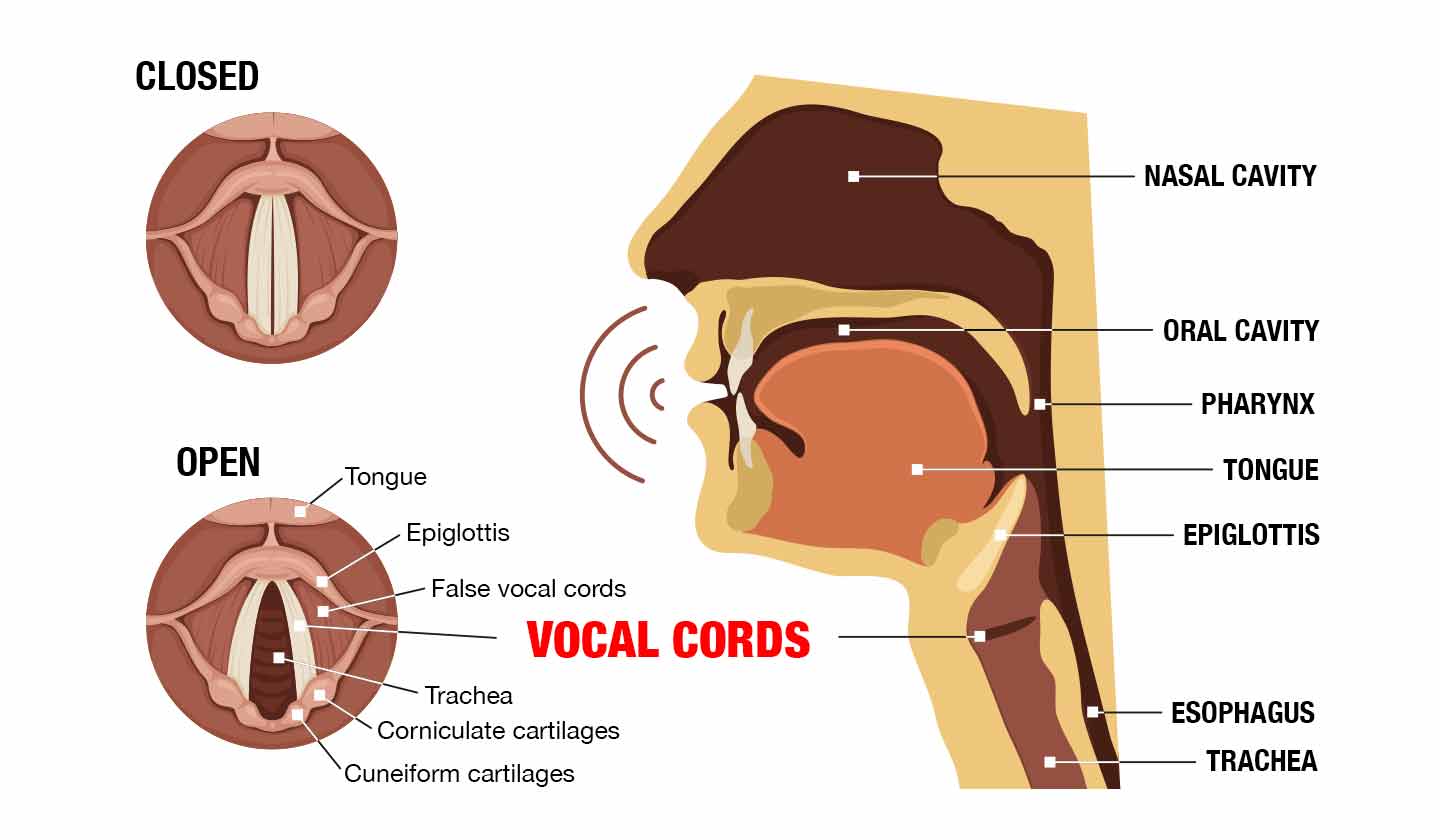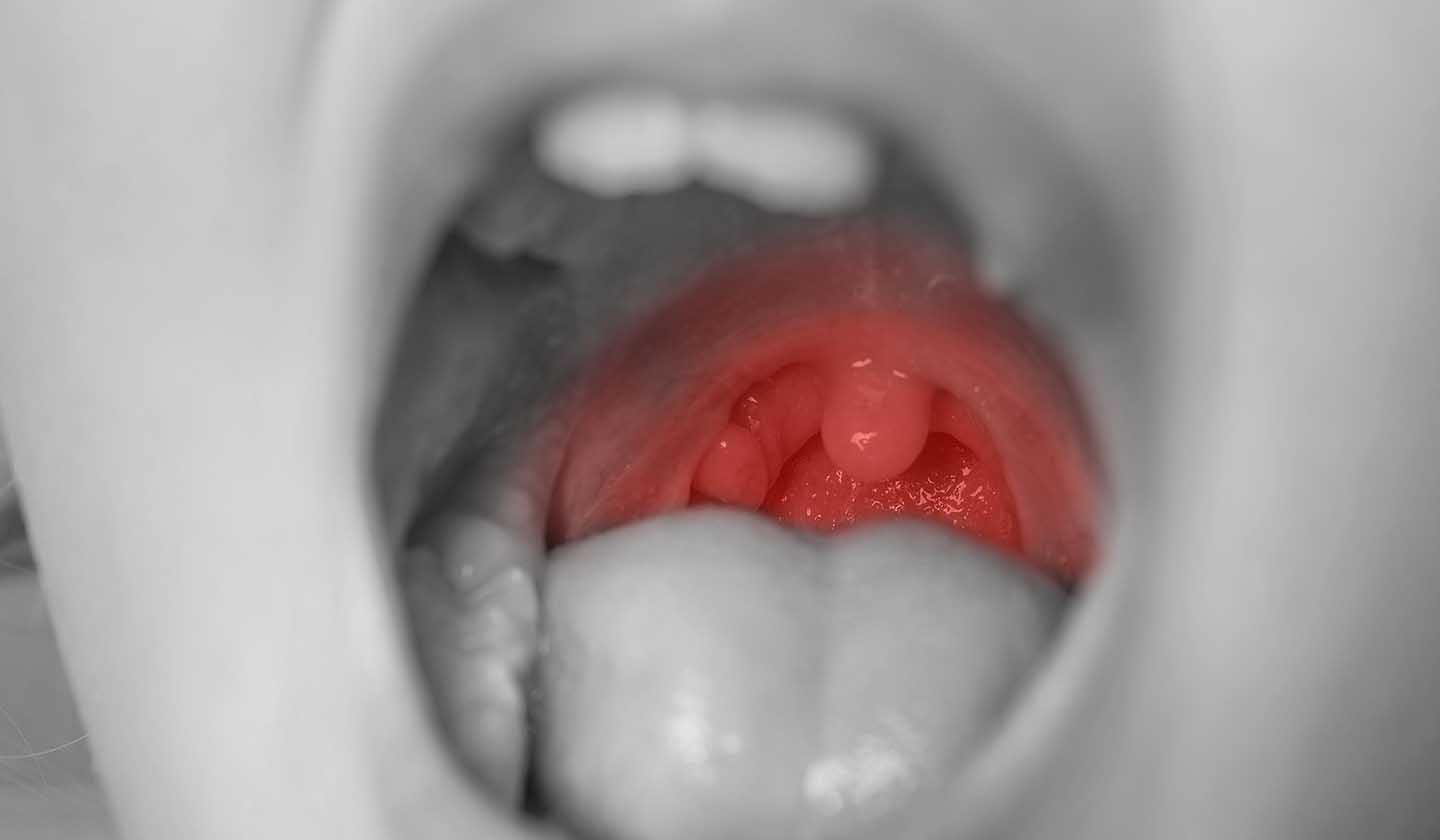Respiratory system
Hoarseness and aphonia - With voice well in tune

The voice is a precious tool in our interaction with others. For this reason, it is advisable to keep it “in tune”: It is necessary to prevent excesses, to avoid the incorrect use of the voice and to know how to act in case of hoarseness or aphonia.

A question of vocal cords
Everything happens at the level of the larynx: when we breathe, the vocal cords remain separate, but when we speak or sing, they come together and the air that comes from the lungs makes them vibrate, producing sounds.
Now, when something affects the vocal cords - an inflammation, for example - they are prevented from coming together correctly, and vibrate in a different way, which alters the sounds emitted. The result, in these cases, is hoarseness: the voice sounds harsh, weakened, or muffled, and it is difficult to hear, with a different tone; or inability to produce voiced sound - aphonia.

Threatened sounds
The causes of hoarseness and aphonia are multiple:
- Infection or inflammation in the larynx;
- Excessive cough;
- Tobacco and alcohol as they make vocal cords drier;
- Excessive and/or incorrect use of the voice: this can happen to people of different professions, such as call centre operators, singers, teachers, coaches;
- Gastroesophageal reflux, in which the acidic content of the stomach flows backwards and up into the oesophagus, irritating the vocal cords;
- Type 2 diabetes: people with diabetes have increased likelihood of developing hoarseness;
- Some medications: inhalers used to treat Asthma and COPD (if used incorrectly), as well as some anti-allergy and decongestant drugs;
- Nodules in the vocal cords: a frequent condition
among those who strain their voice too hard;
Persistent hoarseness can be the warning symptom of a more serious medical condition, such as paralysis of the vocal cords or larynx tumour.

Rest, time, and patience
The treatment for hoarseness consists of rest, time, and patience. In general, hoarseness, when not associated with other symptoms, disappears in a few days.
However, there are some actions that can help you relieve hoarseness:
- Avoid using your voice;
- Do not mumble, as it requires more effort from the vocal cords;
- Moisture the air you breathe;
- Do not smoke and avoid exposure to second-hand smoke;
- Avoid eating spicy foods;
- Drink plenty of fluids.
In general, self-care is sufficient to relieve hoarseness. However, some cases require medical assessment.
When hoarseness:
- lasts for more than a week in a child or three weeks in an adult,
- is accompanied by difficulty in breathing,
- occurs in a baby younger than three months old,
- is accompanied by coughing up blood.

Before your voice starts to hurt
The ideal is to prevent hoarseness and to keep your voice healthy. How?
- Drink plenty of water: six to eight glasses a day to keep your body and vocal cords hydrated.
- Avoid drinking alcohol and caffeinated drinks as they irritate and dehydrate your throat.
- Avoid smoking: when smoke passes through the vocal cords, it irritates them, which can cause inflammation.
- Use your voice correctly: shouting, raising your voice in a noisy environment, forcing it to a tone different from what is natural to you are behaviours that should be avoided. Those who use their voice professionally must learn correct vocal placement techniques and, whenever possible, make use of microphones.
- Avoid clearing your throat: This habit forces the vocal cords to come together abruptly, which can cause injuries: to clear your throat, it is best to drink a glass of water.
In some cases, medication may be necessary.
Sources
iSaúde
Farmácia Distribuição Magazine
Também lhe poderá interessar
Digestive system
When gastric acid is where it shouldn't be
Respiratory system






